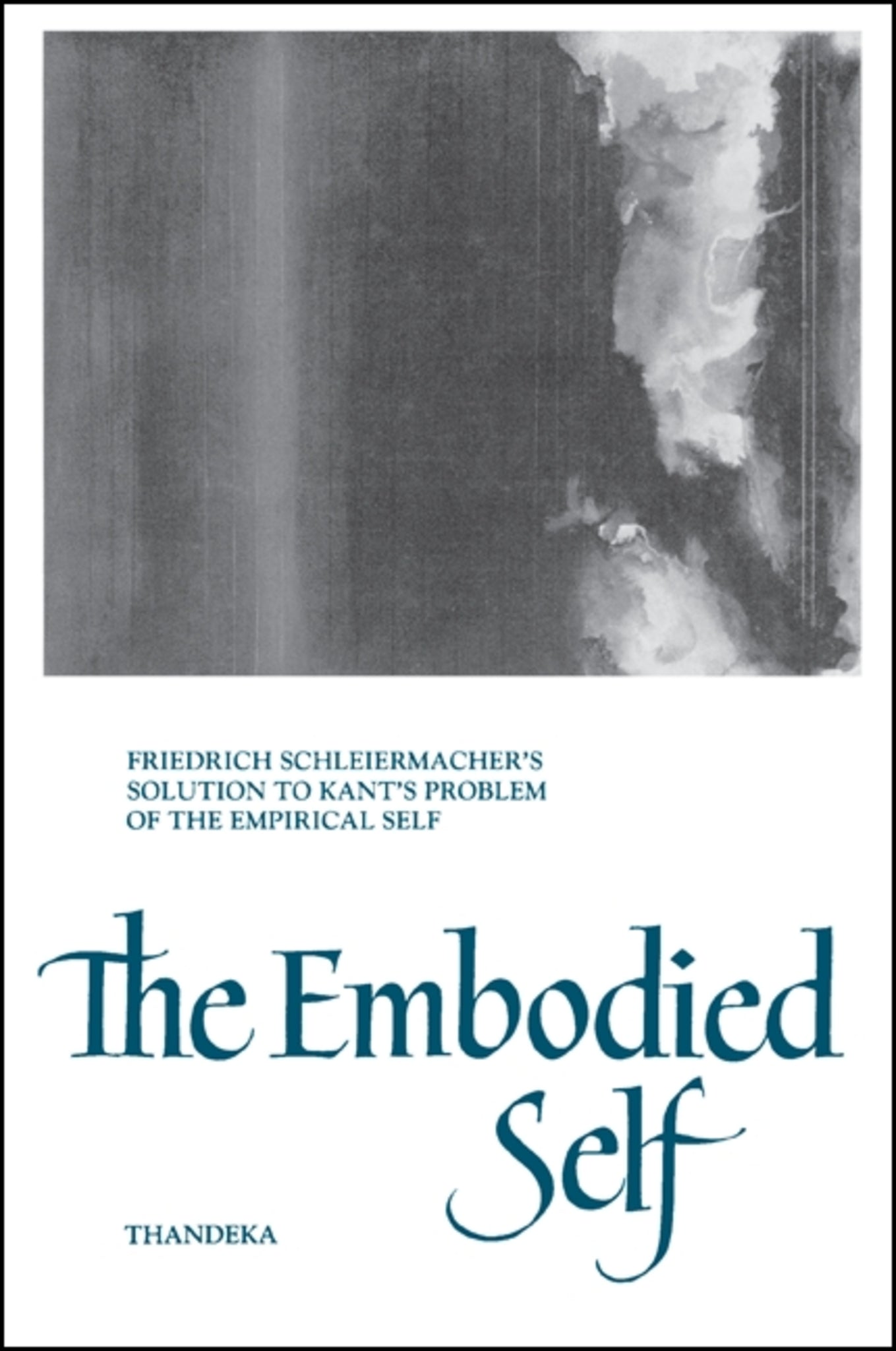We're sorry. An error has occurred
Please cancel or retry.
The Embodied Self

Some error occured while loading the Quick View. Please close the Quick View and try reloading the page.
Couldn't load pickup availability
- Format:
-
10 August 1995

Schleiermacher presents a viable, systematic approach to self-consciousness that unifies thinking, feeling, and life itself—that reconfigures the whole of human experience. He presents a self capable of generating coherence amidst ethnic conflicts and the environmental crisis.
This book investigates the philosophic notion of self-consciousness found in the work of Immanuel Kant, Johann Gottlieb Fichte, Friedrich Wilhelm Joseph von Schelling, Georg Wilhelm Friedrich Hegel and Friedrich Ernst Daniel Schleiermacher. Its central focus is on Schleiermacher's Dialektik, a posthumously published series of lectures delivered in Berlin between 1811 and 1831. In these lectures, we find Schleiermacher's most detailed delineation of the two-tiered structure of feeling (Gefühl) that established him as the father of modern Protestant theology. We also find his solution to the gap between the noumenal and empirical self in Kant's theory of self-consciousness that post-Kantian idealists attempt but failed to resolve. Schleiermacher correctly foresaw the nihilistic end to which the philosophical tradition of speculative self-consciousness would lead.


"What I like most about this book is its presentation and elaboration of Schleiermacher's lectures on dialectics, which is probably the most important untranslated material in fundamental philosophy of nineteenth-century European thought. Previous English accounts have not brought out the contemporary impact of this work.
"The topic is certainly important since it addresses basic issues that arise out of the world of Kant, the most influential philosopher of the modern world. The author's view that Kant loses the unity of human selfhood and that Schleiermacher viably meets this problem with his analysis of the philosophical ingredients of knowing and being locates the book in a prominent area of continuing interest." — Jack Verheyden, The Claremont Graduate School
List of Abbreviations
Preface
Acknowledgments
Introduction
Schleiermacher's Critique of Modern Philosophy
Schleiermacher's Dialektik: An Unfamiliar Story
Schleiermacher's Reconstruction of the Self
Chapter One. Kant's Problem
Schleiermacher Discovers Kant
Kant's Moral Link to God
Schleiermacher's Existential Link to 'God'
Kant Discovers the Gap in His Critical Philosophy
Kant's a priori Aporia: The Two Selves in Kant's First Critique
Idealism's One-sidedness
Chapter Two. Fichte's Insight
Beck's Standpoint: Original Reconciliation
Fichte's Standpoint: Intellectual Intuition
Schleiermacher's Scant Praise
Kant's Conflicted Condemnation
Chapter Three. Schleiermacher's New Vocabulary
for Consciousness
The Two-fold Nature of an Act of Thinking: The Organic
and Intellectual Functions
Consciousness
Objective and Subjective Consciousness
Concepts and Judgments
The Limits of Determinate Thinking
Denkenwollen vs. Denken: The Will to Think vs. Actual Thinking
The Ethical Subject
The Physical Subject
Schleiermacher's Three-fold Strategy
Schleiermacher's Master Key
Kant, Beck, and Fichte Revisited
Chapter Four. Schleiermacher's Original Insight
The Point of Indifference
The Common Border
The Means of Transition
Anschauung: Object-less Awareness
Gefühl: Subject-less Awareness
The Source of Certitude
The Two Tiers of Feeling
Consciousness of God
Conclusion
Chapter Five. The Embodied Self
The Two Canons of Schleiermacher's Dialektik
Conclusion
Notes
Selected Bibliography
Index



